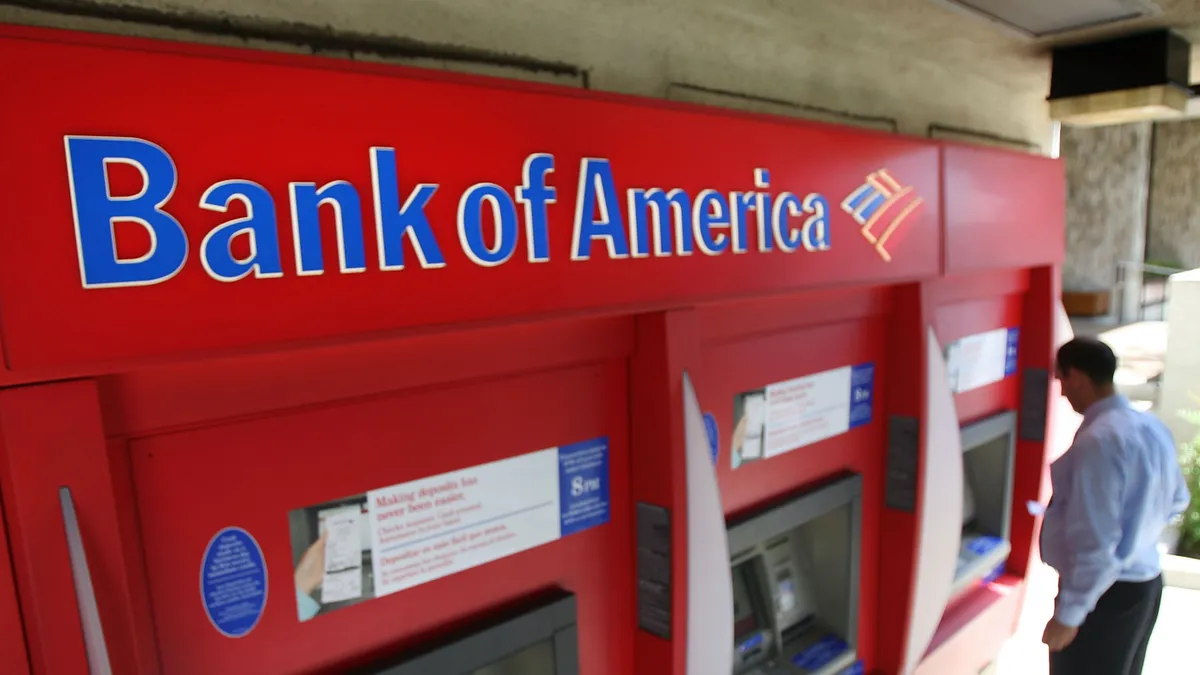Dive Brief:
- More than $2 billion has been stolen from California’s unemployment fund, Bank of America said this week.
- Bank of America identified 640,000 accounts in the state’s unemployment benefits system with suspicious activity that should be investigated, bank officials told state legislators in a letter. That includes 76,000 payment cards, on which the benefits are issued, sent to people in nonadjacent states less likely to temporarily host out-of-work Californians.
- Red flags have also been issued on claims filed in the names of infants, children and centenarians, the bank said. In "numerous cases," multiple cards — hundreds, in some instances — were sent to a single mailing address or used a common contact phone number, Brian Putler, the bank's director of California government relations, wrote, according to the Los Angeles Times and Newsweek.
Dive Insight:
Bank of America issued more than 8.2 million cards holding more than $105 billion between March and November under a contract with the California Employment Development Department (EDD).
After the EDD announced that nearly 350,000 of its debit cards had been frozen to investigate suspicious activity, 59 California lawmakers wrote to Bank of America CEO Brian Moynihan to inform him that their offices had received numerous calls from workers whose legitimate claims to benefits were closed or otherwise inaccessible.
"Constituents report they are unable to get through to your call centers, or when they do, the issue is not resolved," the lawmakers wrote to Moynihan on Nov. 24.
The EDD said it is coordinating with Bank of America to review debit card accounts the bank has frozen. Crystal Page, a deputy secretary for the state Labor and Workforce Development Agency, told Newsweek the EDD is unable to confirm the $2 billion figure because it is still verifying identities on some claims. However, she said, if Bank of America does not unfreeze the accounts of jobless residents, the EDD would send benefits by check.
The bank, for its part, has boosted staffing to handle problem claims and has proposed changes to the contract with EDD so a dedicated call center could help authenticate blocked and frozen accounts, Putler said.
"We share with you and with EDD the objective of ensuring that legitimate claimants get the benefits they deserve while mitigating the impact of the unprecedented fraud being experienced," Putler wrote to legislators, adding that "the scale of program fraud in California is unique."
Jon Coupal, president of the Howard Jarvis Taxpayers Association, called the situation "outrageous," according to the Los Angeles Times. "We understand that there was an effort to push as much money into the economy as possible but there has got to be some controls. Here it is like they have opened up a bag of cash in the middle of a tornado and hoped that it ends up someplace where it is supposed to be."














